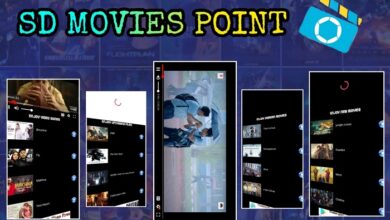Learn to Sit Back and Observe: Not Everything Needs Action – Tymoff’s Wisdom for a Balanced Life

Introduction
In a world that constantly demands our attention and reaction, the wisdom of “learn to sit back and observe. Not everything needs action” by Tymoff offers a refreshing perspective. This simple yet profound advice encourages us to pause, reflect, and consider before we act. In this blog, we will explore how adopting this mindset can significantly impact various aspects of our lives, from personal growth and relationships to our professional lives and interactions on social media.
The Art of Observation
Learning to sit back and observe involves developing the art of observation. This means taking the time to understand situations and people before jumping to conclusions or actions. Tymoff’s quote teaches us that not everything requires our immediate response. By observing, we can gain deeper insights and make more informed decisions.
Personal Growth Through Patience
Personal growth is often accelerated when we learn to sit back and observe. Not everything needs our immediate intervention. Patience allows us to understand ourselves better, recognize our triggers, and respond more thoughtfully to life’s challenges. Tymoff’s wisdom encourages us to embrace a more measured approach to personal development.
Enhancing Relationships
In relationships, the ability to sit back and observe can prevent unnecessary conflicts and misunderstandings. Not every situation needs an immediate reaction. By observing our partner’s behavior and considering their perspective, we can respond more empathetically and constructively, leading to healthier and more fulfilling relationships.
Professional Success
In the professional world, the ability to observe rather than immediately act can be a key to success. Tymoff’s advice to learn to sit back and observe teaches us that not every problem requires an instant solution. Sometimes, taking a step back allows for a better understanding of the situation, leading to more strategic and effective decision-making.
Social Media and Digital Interactions
In the age of social media, learning to sit back and observe is more crucial than ever. Not every post or comment requires a response. Tymoff’s wisdom reminds us to consider the impact of our digital interactions and to choose our responses carefully. This approach can help maintain our mental well-being and foster a more positive online environment.
Mindfulness and Mental Health
Mindfulness practices are closely aligned with the idea of sitting back and observing. Not everything needs action. By being present and aware, we can observe our thoughts and feelings without immediately reacting to them. This can reduce stress and anxiety, promoting better mental health and overall well-being.
Conflict Resolution
Effective conflict resolution often requires the ability to sit back and observe. Tymoff’s advice highlights that not every conflict needs immediate resolution. Sometimes, giving space and time to a situation can lead to a more amicable and thoughtful resolution. Observation allows us to see the bigger picture and address the root causes of conflicts.
Parenting with Patience
In parenting, the ability to sit back and observe is invaluable. Not every misbehavior requires immediate correction. By observing our children and understanding the reasons behind their actions, we can respond more effectively and nurture their growth in a positive way. Tymoff’s wisdom encourages a more patient and understanding approach to parenting.
Creativity and Innovation
Creativity and innovation often flourish when we take the time to sit back and observe. Not everything needs action. By observing trends, behaviors, and patterns, we can gain inspiration and come up with more innovative ideas. Tymoff’s philosophy encourages a thoughtful and reflective approach to creativity.
Cultivating Inner Peace
Ultimately, learning to sit back and observe can lead to greater inner peace. Not everything in life requires a reaction. By embracing this mindset, we can reduce unnecessary stress and anxiety, leading to a more balanced and fulfilling life. Tymoff’s wisdom offers a path to tranquility in a chaotic world.
Conclusion
The wisdom of “learn to sit back and observe. Not everything needs action” by Tymoff is a powerful reminder of the value of patience, mindfulness, and thoughtful observation. By incorporating this philosophy into our lives, we can enhance our personal growth, improve our relationships, succeed professionally, and maintain better mental health. In a world that often demands immediate reactions, Tymoff’s advice encourages us to take a step back, observe, and respond with intention and clarity.
FAQs
1. How can I start practicing the art of observation in my daily life?
To practice the art of observation, start by slowing down and taking time to notice details in your surroundings, interactions, and thoughts. Journaling your observations can also help enhance your awareness.
2. How does learning to sit back and observe improve relationships?
By observing rather than reacting immediately, you can better understand your partner’s perspective, leading to more empathetic and constructive responses. This approach can prevent conflicts and strengthen the relationship.
3. Can this philosophy be applied in high-stress work environments?
Yes, in high-stress work environments, taking a step back to observe can lead to more strategic decision-making and reduce the risk of burnout. It allows for a better assessment of situations before taking action.
4. How does this mindset benefit mental health?
Observing without immediate reaction helps reduce stress and anxiety by allowing you to process emotions and thoughts mindfully. This practice promotes mental clarity and emotional balance.
5. Is it possible to overdo the practice of sitting back and observing?
While it’s beneficial to observe, it’s also important to know when action is necessary. Balancing observation with timely action is key to effectively applying this philosophy in life.




